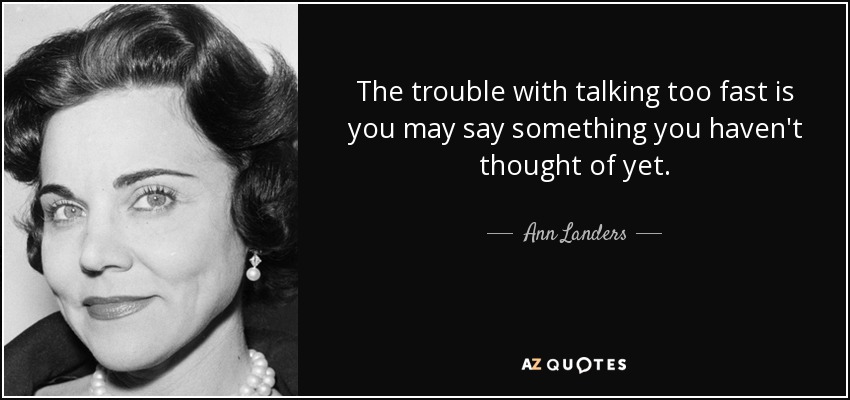Those of us who attempt to speak a second or third language (in which we haven’t mastered a high degree of fluency) often feel overwhelmed by the speed of delivery of native speakers. We struggle with unfamiliar words and grammar, try desperately to decode meaning from complex sentence structures and often end up feeling completely bewildered. At some point, we probably give up or resort to asking our conversation partner to slow down the stream of sound. But what’s really going on? Could it be that some languages are actually spoken faster? And if they are, why?
What does the science say?
You might be relieved to find out that in this instance your impressions are accurate, at least to a degree… But what does the science say? Studies are few and not extensive in their sample sizes, but there are some interesting findings1 which suggest that speed of speech does vary both in terms of syllables per second and information density per syllable. One syllable ‘content’ word can carry a lot of meaning: adjectives like ‘meek’, ‘frail’, ‘stale’ and ‘bland’, for example, are manifestly rich in significance. Other syllables however – so-called ‘grammar’ or ‘function’ words like ‘to’, ‘from’ and ‘and’ – are obviously less critical to communication. In short, the more ‘data-dense’ the average syllable in a given language, the fewer the number of syllables required and hence, the perceived speed of the language.
Distinctive stress patterns
So, you must be wondering by now, how does English score? For the phoneticians amongst you it won’t surprise you to discover that due to our highly distinctive stress patterns, we’re quite low down in the speed league at 6.19 syllables per second. Of the seven languages sampled, Spanish wins second place at 7.82 syllables per second and is only trumped by Japanese at 7.84! Slowest of all was Mandarin Chinese at 5.18.
Speech is a ‘one hit wonder’
What can we conclude from this data? It’s fair to say that anything that we have difficulty grasping intellectually is likely to be perceived as ‘too fast’ whether this is a language that we struggle to understand or a concept that we’re unfamiliar with featured in a speech or a seminar. Negative feedback about speakers most often focuses on their speed and its adverse effect on impact and engagement. A speech is by default a ‘one hit wonder’ and that’s why it’s completely different from a piece of text designed to be read. When you read something and don’t immediately ‘get’ it, you can re-read it until you do. If a speaker misses his mark, it’s too late. Once you’ve lost your audience’s attention, it’s probably irretrievable.
Larger-than-life
Speak with passion and purpose, which in practical terms means with lots of emphasis and plenty of vocal variety. Observe pauses for effect to build anticipation and allow your audience to digest your message and commit to memory. Remember, public speaking is a high energy activity; it’s a larger-than-life version of your normal self and that takes time!
1 https://time.com/archive/6935020/slow-down-why-some-languages-sound-so-fast/

